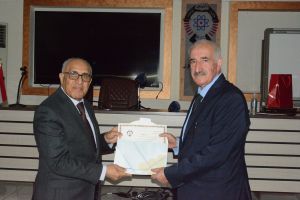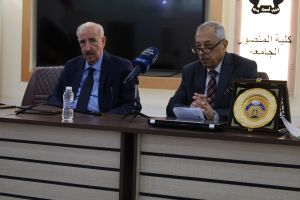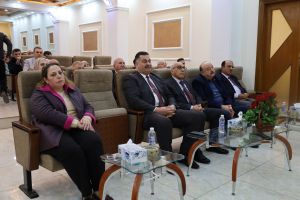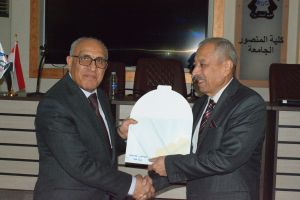Scientific Symposium on Institutional Building Mechanisms in the Iraqi State
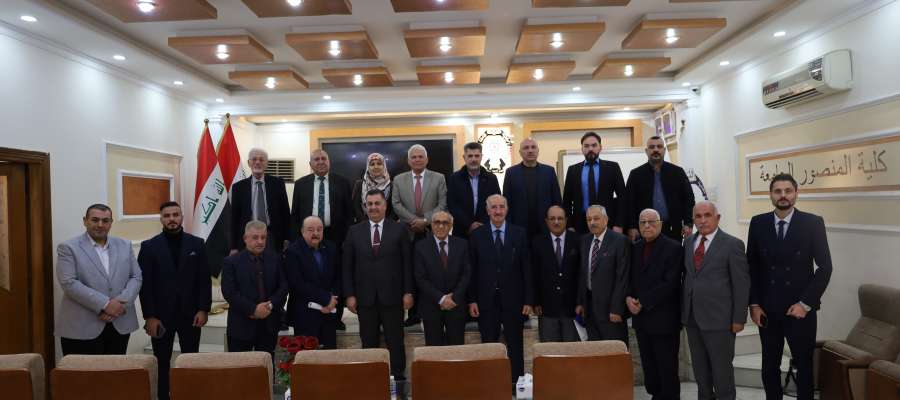
Dec 2nd, 2024
4868
Under the patronage of the Dean of Al-Mansour University College, Prof. Dr. Sabah Mohammed Kallow, and in the presence and supervision of Prof. Dr. Abdul Sattar Shaker Salman, Scientific Assistant Dean
The Department of Business Administration and the Al-Mansour Center for Studies and Research implemented a specialized scientific symposium on the mechanisms of institutional building in the Iraqi state, which Prof. Dr. Abdul Basit Turki Al-Hadith - former head of the Financial Supervision Bureau - hosted to talk about the subject through a presentation and analysis of his personal experience in managing the Financial Supervision Bureau for the period 2004-2014. Prof. Dr. Ahmed Omar Ahmed, Head of the Department of Business Administration, moderated the dialogue.
Dr. Ahmed - Chairman of the session - opened with a welcoming speech to the attendees and the guests for responding to the invitation to contribute to the symposium and pointed out the importance of the symposium topic, which revolves around the importance of building institutions on sound foundations in which roles are distributed, relationships are organized, ideas are directed, and costs and efforts are rationalized, which are directed towards achieving the goals of the institution for which it was established.
Then, Dr. Abdul Basit gave his lecture, reviewing the transformations that took place in the construction of the state's public institutions since the formation of the Iraqi state in the twenties of the last century, which relied on financing expenses through taxes and fees. After oil extraction, the state shifted to paying its expenses by relying entirely on oil revenues. Then, in 1964, the state expanded in building its public institutions after nationalizing private sector institutions, and they became public institutions. Then, the lecturer spoke about his experience in the Financial Supervision Bureau and the administrative procedures taken to make this institution perform its tasks with complete neutrality in monitoring state institutions and issuing audit reports on them with impartiality and independence. It also discusses how its management relied on gaining the internal environment and encouraging and training members to improve their professional efficiency and the effects of that on achieving the main objectives of the Financial Supervision Bureau. He pointed out that the Audit Bureau had optimally accomplished its tasks despite the political and security circumstances that Iraq had gone through after 2003. The symposium raised some questions from the attendees, focusing on the role of the Audit Bureau in reducing the cases of corruption rampant in public institutions. The answer to those questions was that the Audit Bureau had referred about 1512 reports to the Integrity Commission. Its tasks were to diagnose corruption and present it to the relevant authorities.
More photos:


